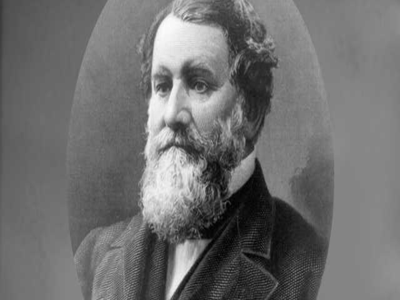
“A very high proportion of those engaged in selling cannot sell….If American sales efficiency is to be maximized and the appalling waste of money and manpower which exists today is to be minimized, a constructive analysis must be made of what selling really is and how its effectiveness can be enhanced….We must look a good deal further—into the mysteries of personality and psychology—if we want real answers.” –Robert N. McMurry, “The Mystique of Super-Salesmanship,” Harvard Business Review March–April 1961
Nearly sixty years later, not much has changed. The sales profession, maybe because of its sheer scope, is filled with people who not only don’t take it seriously, but with many of whom that don’t even bother to try.
So what does make a good salesperson, besides a smile and follow-through? Researchers David Mayer and Herbert M. Greenberg spent seven years trying to answer this question in the 60s. They were amazed that the turnover rate among American insurance agents at that time was approximately 50% within the first year and 80% within the first three years – and had been for the previous 35 years.
So they set out to investigate “the mysteries of personality and psychology” that McMurry spoke of to see what innate qualities a salesperson possesses that makes them good at their job – and how to screen for those qualities in candidates even if the candidates themselves were trying to game the system.
Two Essential Qualities
Mayer and Greenberg discovered that a good salesperson must have at least two basic qualities: empathy and ego drive.
Empathy
Empathy is the ability to know what someone else is feeling because you have felt it before. Mayer and Greenberg compared an empathetic salesperson to the “new” heat seeking missiles on the market (they were new in 1960). A salesperson with little empathy is on a set path and doesn’t deviate from his course due to anything the target, or customer, does. Therefore, he is more likely to miss his target. An empathic salesperson, however, feels what the customer is feeling and adapts their course accordingly, the same way a heat-seeking missile launched slightly off-course will be drawn to the heat of the target’s engine, will course-correct, and hit its target every time.
Ego Drive
Those with ego drive see a successful sale as a personal achievement and an unsuccessful one as a personal failure. Does this sound like a recipe for disaster? It is, if the drive leans too far one way or the other. If an unsuccessful sale diminishes a person’s ego but pushes them to do better in future, the ego drive is balanced. If an unsuccessful sale brings down a person so low that they are incapacitated for a time, the ego drive is too strong.
A balancing act.
A precise blend of these two qualities, each reinforcing the other, is what makes a salesperson successful. Salespeople with both empathy and ego drive have sufficient desire to make the sale and the tools to respond to their customer in a way that allows them to close the deal.
The Fallacy of Experience
Mayer and Greenberg also found that companies were placing far too much emphasis on a salesperson’s experience in the field rather than their innate ability to sell. Therefore, subpar salespeople were being hired and promoted for years in jobs they never should have held in the first place. Similarly, people in other types of roles at these companies were actually evaluated as being A-level salespeople, but because they had always been in accounting or HR, no one had ever given them the opportunity to try a role that was more suited to their abilities or interests.
Sixty years after Mayer and Greenberg’s study, it’s possible that things have changed. But if empathy and ego drive (we would probably call this motivation today) aren’t two of the critical components to sales success, then it’s hard to imagine what would be.







